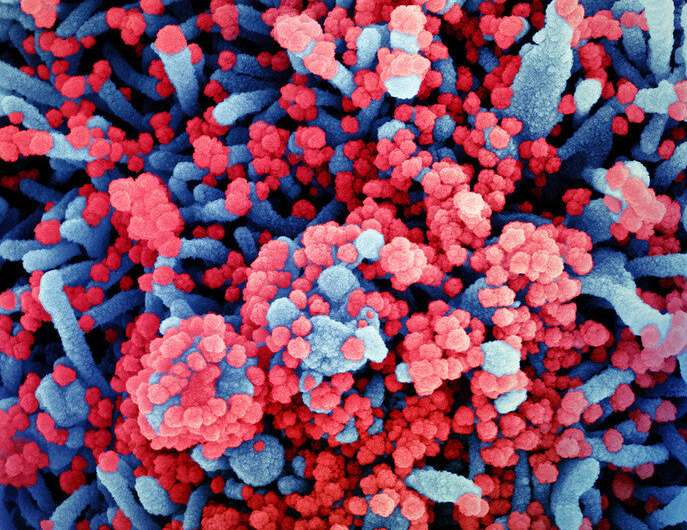COVID-19 antibody surveys underestimate infections: study

COVID-19 prevalence surveys that detect levels of antibodies to determine whether people were infected in the past might be unreliable given how quickly these infection-fighting proteins fade, a US government study said Wednesday.
Whether the decline in antibodies increases the risk of reinfection remains uncertain.
It is thought likely that if re-exposed to the virus, most people's immune systems will produce new antibodies, as well asimmune cellsthat target and destroy cells that have been infected.
But the new study highlights an important limitation of "seroprevalence studies" that are being carried out around the world in an attempt to better understand the true number of people who have been infected by a virus that often causes no symptoms.
The US Centers for Disease Control and Prevention collected blood serum samples from frontline health care personnel at 13 hospitals between April 3- June 19 2020, and followed up approximately two months later.
Overall, 194 of 3,248 participants (six percent) had detectable antibodies to SARS-CoV-2 the first time they were tested.
Among the participants who tested positive, 156 agreed to re-test, between 50-91 days later.
In this group, 94 percent saw a decline in their antibody levels, with 28 percent not producing enough COVID-19 antibodies to meet a clear threshold that would suggest prior infection.
"These results suggest that serology testing at a single time point is likely to underestimate the number of persons with previous SARS-CoV-2 infection, and a negative serologic test result might not reliably exclude prior infection," wrote the authors.
Participants who had reported symptoms of disease had higher levels of antibodies initially than those who had asymptomatic infection, and were less likely to fall below the "positive" threshold.
Most people infected with the virus develop antibodies over the next several weeks, but people with milder or asymptomatic infection develop fewerantibodies.
Apart from helping to quantify how many infections seroprevalence studies may be missing, the results "challenge the notion of using serologic testing results at an individual level to designate previous SARS-CoV-2infection," said the authors.
Finally, the study also shows that the window is limited for collecting potentially effective "convalescent plasma" from the blood of patients who have fought off COVID-19, they added.
Explore further
© 2020 AFP


















User comments